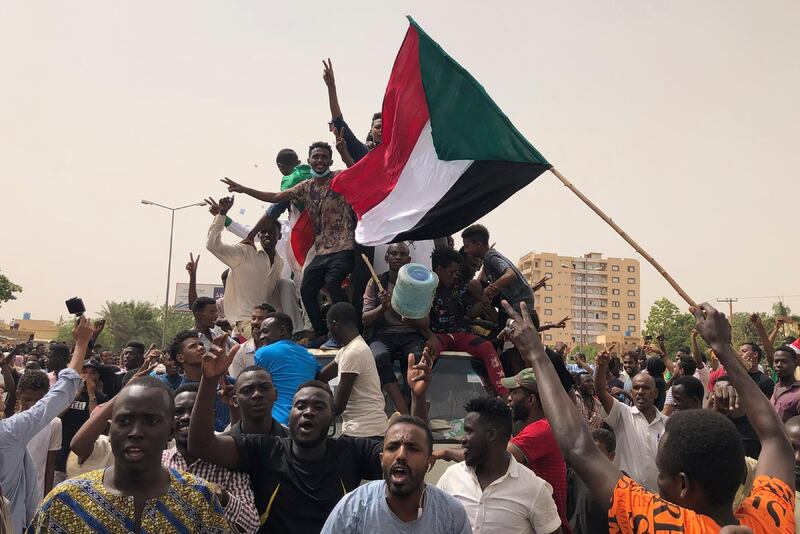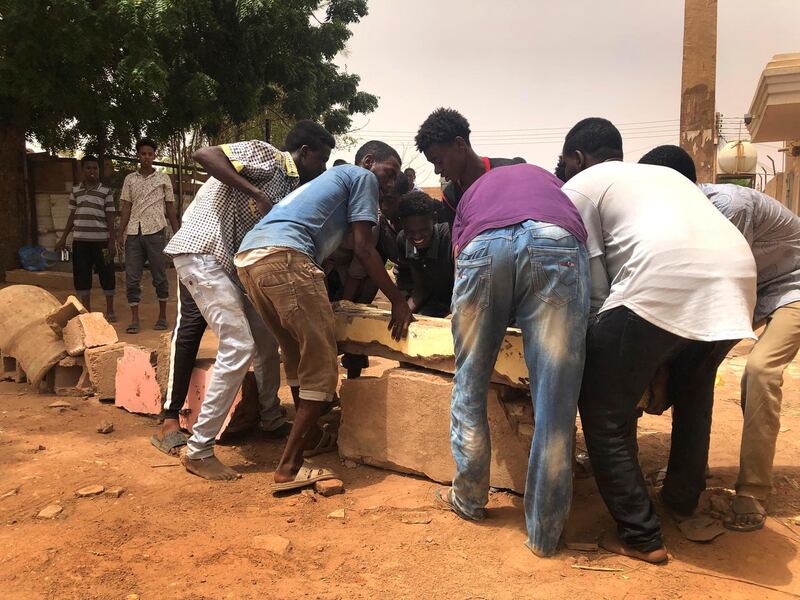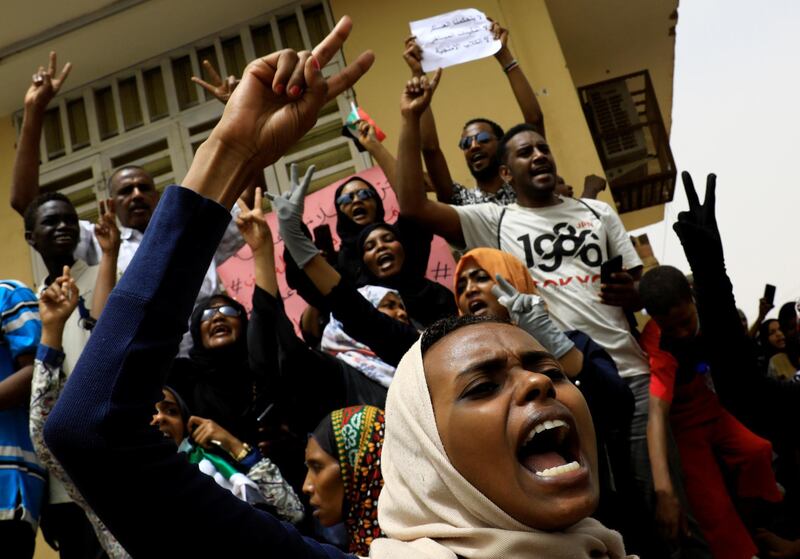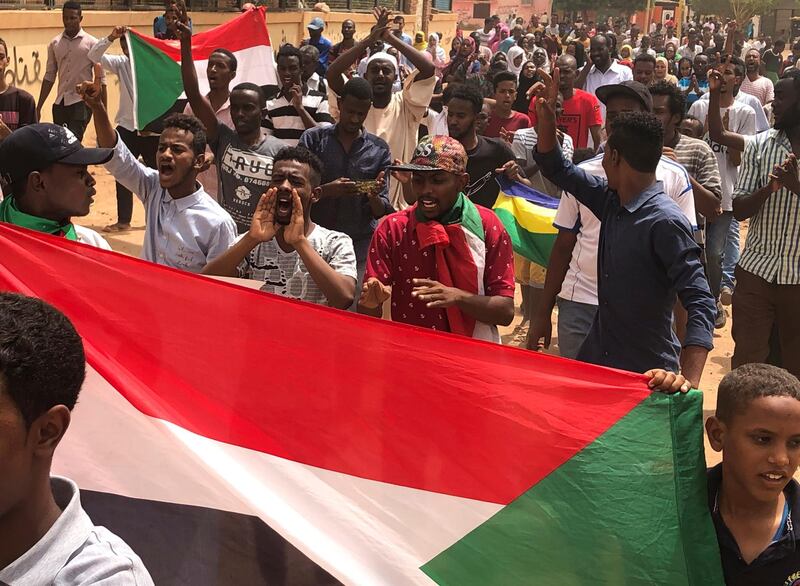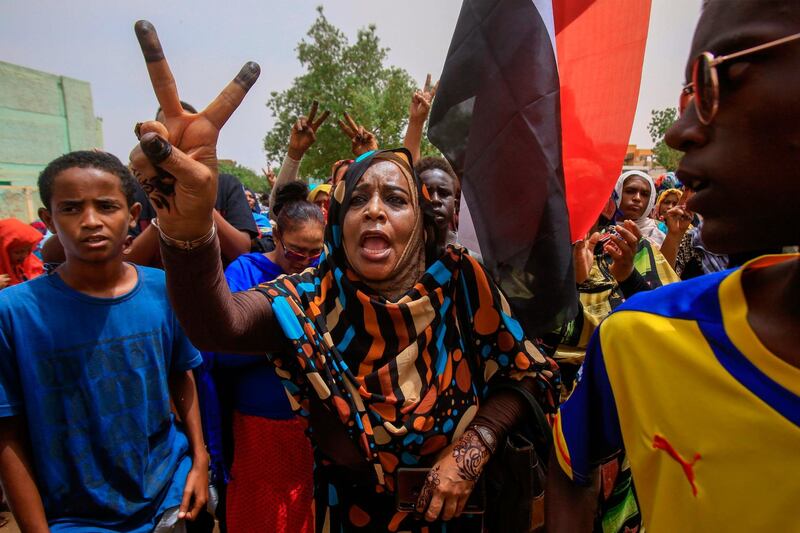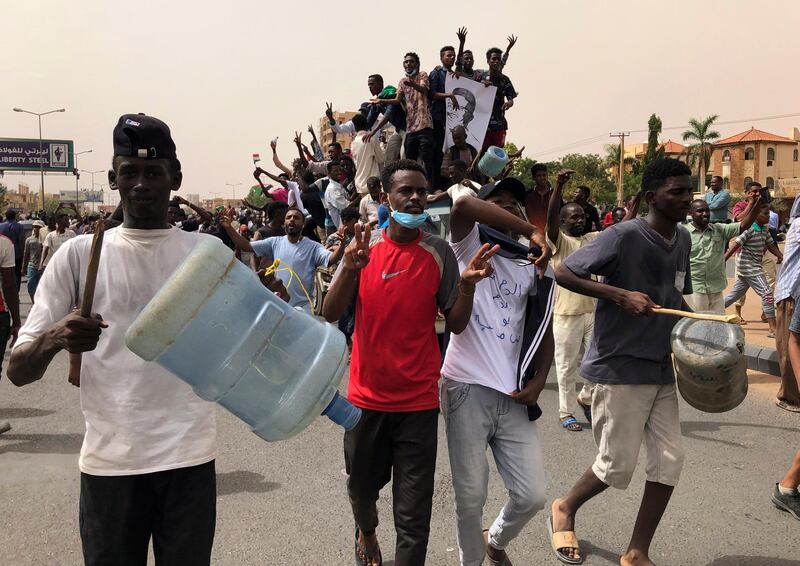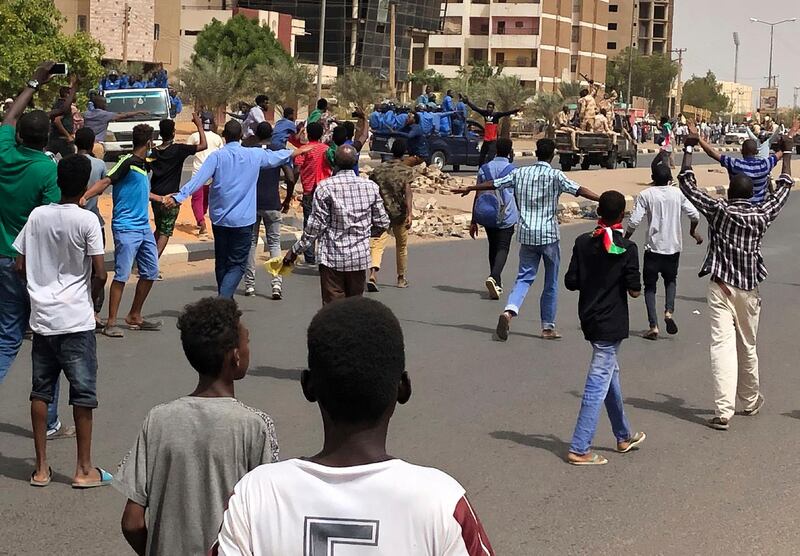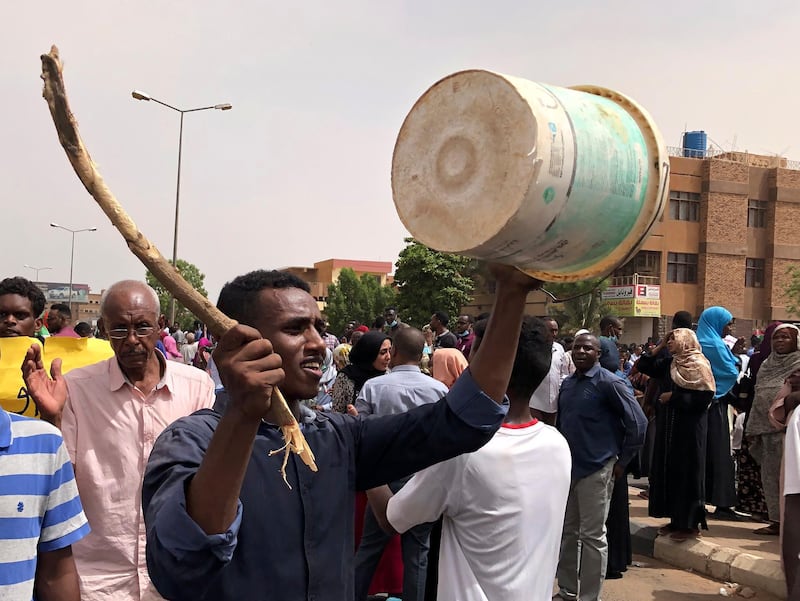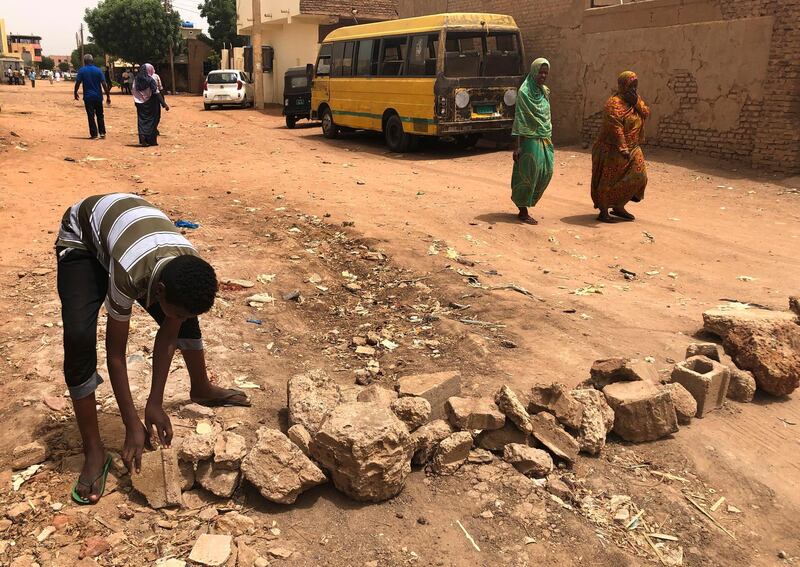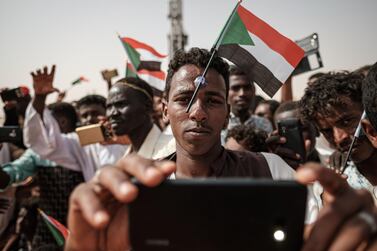Gunfire broke out in Khartoum on Sunday as hundreds of thousands of Sudanese marched in the streets across the nation to demand that generals hand over power to a civilian-led government.
Witnesses said soldiers fired in the air as the marchers approached the military headquarters, where a raid by security forces on a sit-in camp on June 3 killed scores of protesters.
Soliman Abdel-Gabar, acting undersecretary of health, reported on Sunday night that at least seven people died during the day. He said 181 people were injured, including 27 with bullet wounds.
Security forces also used tear gas to disperse marchers at several parts of the Sudanese capital.
Protests also erupted in the railway city of Atbara north of Khartoum, the birthplace of the uprising that began in December against the rule of removed president Omar Al Bashir.
A doctors' group linked to the protest movement said a man in his 20s was shot dead there on Sunday and another was wounded.
Video clips posted online showed protesters in Khartoum waving Sudanese flags and chanting slogans such as, "Burhan's council, just fall", alluding to the head of the ruling military council, Gen Abdel Fattah Al Burhan.
They also shouted "the people want to bring down the regime", "freedom" and "revolutionaries and free, we will continue the journey".
The crowds gathered at several points in Khartoum and the cities of Omdurman and Bahri before marching towards the homes of those killed since the uprising began against Mr Al Bashir.
The nationwide marches fuelled tension between the pro-democracy movement, which was formed after four months of protests against Mr Al Bashir and the generals who removed toppled him on April 11.
They were being held on the 30th anniversary of the military coup led by Mr Al Bashir, which toppled a freely elected but ineffective government.
The protesters turned out despite a warning from the military that the movement would be held responsible for any loss of life or damage to property, which was seen by activists as providing a pretext for more violence by security forces.
The June 3 raid, led by a paramilitary force, led to a complete breakdown in negotiations between the pro-democracy movement and the ruling generals on a transitional government to rule the country until elections are held.
Distrust between the two sides is growing. The generals have recently moved to tighten their grip on the nation.
They have cut internet services since June 3, saying that it posed a threat to national security.
The move crippled the primary means of communication and organisation for the protest movement, which now uses phone text messages.
The generals also have blocked coverage of the protest movement by state media.
On Saturday, security forces prevented the protest leaders from holding a news conference in Khartoum. There have also been some arrests of protest leaders and activists.
Heavily armed members of the paramilitary force called the Rapid Support Forces are stationed across Khartoum. The forces came from a tribal militia accused of atrocities in the Darfur region in the 2000s.
Negotiations between civilians and the military on a transitional administration began soon after Mr Al Bashir's removal but foundered over leadership and representation in a council that was to operate as a collective presidency.
Proposals to restart negotiations, put forward by the the African Union and Ethiopia, have been accepted by both sides but a date has yet to be set.
